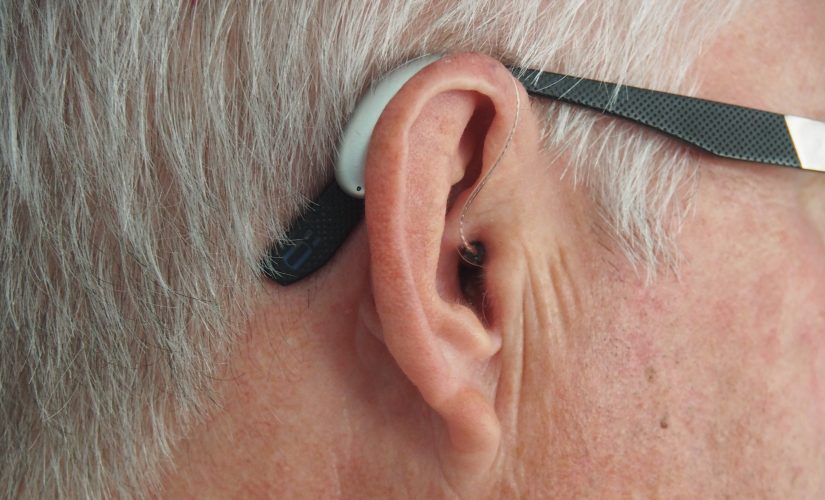
Thursday (17/3) Center for Life-span Development (CLSD) Faculty of Psychology held an international webinar with the topic “Hearing Care Across the Lifespan and Education: Malaysia and Indonesia Perspectives. This webinar event was organized by 3 well-known universities, namely Universitas Gadjah Mada, Sultan Idris Education Universiti, and Universiti Sains Malaysia.
Before entering the material, the event was opened by representatives from 3 universities. First, present Dr. Wenty Marina Minza, M.A as Deputy Dean for Research, Community Service, and Cooperation. Then, also present Dr. Abdul Talib Mohamed Hashim as a associate professor from the Sultan Idris Educational University and the last one attending was Dr. Faisal Rafiq Mahamd Adikan, FASc as a associate professor from Universiti Sains Malaysia.
This webinar is divided into 2 sessions, with the second session being divided into two meeting rooms simultaneously. Room 1 is a room that raises the topic of “Hearing” with three speakers, namely Dr. Wan Najibah Wan Mohamad, Mdm. Aw Cheu Lih, and Dr. Mohd Fadzil Nor Rashid. Meanwhile for room 2, the topic of “Education & Psychology” was raised by three speakers, namely Dr. Elga Andriana, Professor Dr. David Evans, and Dr. Syamsinar Abd Jabar.
In the first session, 3 keynote speakers were presented by each university representative. First, present Prof. Dr. Mohd Normani Zakaria from Universiti Sains Malaysia. Normani delivered the topic “Technological Advancements in Hearing Healthcare”. “How often does hearing loss occur? It is actually very common among babies. We estimate that about 1 to 6 per 1,000 babies are born with hearing loss,” says Normani. Not only babies, hearing loss also has the potential to occur at any age, such as children, teenagers, adults, and the elderly.
The second keynote speaker, attended from Gadjah Mada University, was Dr. Dyah Ayu Kartika Dewanti, MSc, Sp. THTKL(K). Dyah delivered material with the topic “Multidisciplinary Health System for Better Hearing in Indonesia. “Epidemiologically, more than 1.5 billion people have heard loss and an estimated 430 million people have moderate to high hearing loss,” explained Dyah. In addition to having an impact on physical health, hearing loss also has an impact on communication, language and speech development in children, cognition, education, work, mental health, and interpersonal relationships.
Finally, the third keynote speaker is Prof. Dr. Abdul Rahim Razalli as the Academic Director of the Sultan Idris Education University. “Today I want to discuss Bilingual/Bicultural for Deaf Education”, explained Abdul. In addition, Abdul also presented the classification of hearing loss, which consists of conductive hearing loss, sensorineural hearing loss, mixed hearing loss, and central hearing loss.
Then in the second session it was divided into two rooms. Room 1 raised the topic of “Hearing” with the first speaker Dr. Wan Najibah Wan Mohamad from Universiti Sains Malaysia who delivered about “Fixing Future Communication: In Hearing Perspective”. “By 2050, it is estimated that one in four people will have hearing loss,” said Wan. Furthermore, Wan also explained signs of hearing loss, such as frequently asking a partner to repeat, difficulty understanding words especially in a noisy environment, listening to music and watching TV at a higher volume, difficulty hearing on the phone and avoiding social activities.
After that, the delivery of the material was continued by Mdm. Aw Cheu Lih from Universiti Sains Malaysia with the topic “An Overview of Inclusive Education for Hearing Impairment in Malaysia”. According to UNICEF, inclusive education means all children study together in the same school. “This means ensuring that teaching and curricula, school buildings, classrooms, play areas, transportation and toilets are appropriate for all children at all levels”, explains Lih.
Finally, in room 1 the material was delivered by Dr. Mohd Fadzil Nor Rashid with the topic “Teleaudiology Approach in Malaysia: Lesson Learned”. “That is, whatever is done for the assessment and measurement of hearing, including consultation, has considered a teleological approach,” explained Fadzil. There are three types of teleological approaches that can be used, namely synchronous, asynchronous, and hybrid.
Meanwhile in room 2, the topic raised is “Education & Psychology”. First, the material presented by Dr. Elga Andriana from Gadjah Mada University with the title “Hearing Disorders and Its Psychological Impacts Throughout Life: The Narrative of Two Worlds”. “Today I will share some photos of deaf students and their stories”. Through the material presented, Elga explained that deaf students face problems in finding people they can communicate with. Therefore, research shows that many students are at risk of being lonely.
Then, the next material was delivered by Professor Dr. David Evans from Universiti Pendidikan Sultan Idris (The University of Sydney) with the title “Inclusive Education for Deaf Children”. “In Sydney, we have the Royal Institute for the blind and deaf, they provide a great service for schools and educators”, said David.
As a closing in room 2, Dr. Syamsinar from Sultan Idris Education University who added material about “Technology and Deaf Learners”. “I will share about technology and the learning process for the deaf in Malaysia. We have four levels of the education system”, explained Syamsinar.
This event aims to generate and assist knowledge through teaching, research, publication, consultation, and community service to achieve the nation’s vision.
